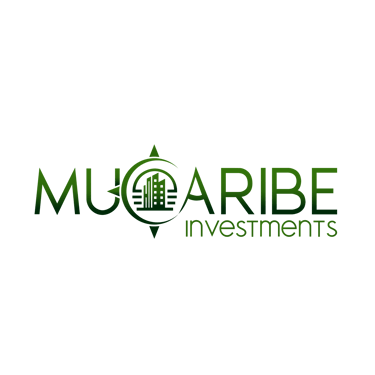
HOW TO INVEST IN THE DOMINICAN REPUBLIC | FOR FOREIGN INVESTORS
THE 4 PILLARS OF HOW TO INVEST IN THE DOMINICAN REPUBLIC SUCCESSFULLY
With its strategic location, stable economy, and pro-investment policies, the Dominican Republic offers a thriving market across key industries such as tourism, real estate, free trade zones, and renewable energy. As a result, how to invest in the Dominican Republic has become a key question for international investors looking to capitalize on high-growth opportunities in the Caribbean.
For those looking to maximize returns and capitalize on the country’s economic expansion, understanding the investment landscape, legal framework, and financial incentives is crucial.
This guide explores the most profitable sectors, key investment strategies, and how Mucaribe Investments provides secure, high-yield real estate opportunities in Punta Cana.
UNDERSTANDING THE INVESTMENT LANDSCAPE
Before making any financial commitments, investors should familiarize themselves with key sectors, economic conditions, and government policies. The Dominican Republic provides a stable and business-friendly environment, with opportunities in high-growth industries such as hospitality, manufacturing, energy, and real estate.
PROFITABLE SECTORS
TOURISM AND HOSPITALITY
As the leading tourist destination in the Caribbean, the Dominican Republic receives millions of international visitors every year. This steady influx fuels demand for luxury hotels, vacation rentals, and resort developments, making the hospitality sector highly profitable.
To encourage investment, the government offers tax incentives for hotel developments and real estate projects, including exemptions on property taxes, import duties, and corporate income tax. With a booming tourism sector, investors can capitalize on short-term rental demand and long-term property appreciation.
FREE TRADE ZONES
The Dominican Republic has a well-established free trade zone system, offering a business-friendly environment for companies engaged in manufacturing, logistics, and services. These zones provide significant advantages, such as tax incentives, simplified regulations, and access to international markets.
Businesses operating in these areas benefit from reduced operational costs and streamlined export processes, making the country an attractive hub for global trade and investment. With its strategic location between North and South America, the Dominican Republic serves as a key gateway for international commerce, facilitating efficient trade and supply chain operations.
RENEWABLE ENERGY
As industries and trade expand in the Dominican Republic, so does the demand for reliable and sustainable energy sources. The country has been actively developing its renewable energy sector, leveraging its favorable climate for solar, wind, and hydroelectric power projects.
To attract investment, the government provides tax incentives such as duty-free imports on energy equipment and income tax exemptions for companies in the sector.
Additionally, there is a strong national commitment to increasing renewable energy production, aiming to reduce dependency on fossil fuels and create a more sustainable and self-sufficient energy system. These factors position the Dominican Republic as a promising destination for clean energy investments.
REAL ESTATE AND LUXURY DEVELOPMENTS
With the Dominican Republic’s growing appeal as a top destination for tourism and investment, the real estate sector continues to expand, offering lucrative opportunities for investors.
The demand for vacation rentals and high-end residential properties remains strong, especially in popular areas like Punta Cana and Cap Cana, where short-term rentals generate consistent returns.
Beyond rental income, property values in prime locations have shown steady appreciation, driven by increased foreign investment and continuous infrastructure development.
To further attract foreign investors, the Dominican government offers tax benefits under the CONFOTUR law exclusively for qualifying projects funded with foreign capital. These include exemptions from property transfer tax and annual property tax (IPI) for up to 15 years, making real estate investment more accessible and potentially more profitable for international buyers.
Foreign investors, including Americans, can easily purchase real estate in the Dominican Republic, thanks to a straightforward buying process and attractive tax benefits. If you're considering investing from abroad, understanding the legal framework is essential.
OTHER SECTORS
MINING
The Dominican Republic is home to one of the largest gold mines in the world, with mining operations contributing significantly to foreign investment and exports. The sector continues to attract major international mining companies, ensuring stable revenue generation.
AGRIBUSINESS
With its fertile land and tropical climate, the country is a leading exporter of cocoa, coffee, and tropical fruits. The agribusiness sector presents opportunities for organic farming, food processing, and export-oriented agricultural ventures.
TELECOMMUNICATIONS AND FINANCE
As digital transformation accelerates, the telecommunications and financial sectors are expanding. Investments in broadband infrastructure, mobile technology, and fintech solutions are on the rise, positioning the country as a growing hub for digital services.
LEGAL REQUIREMENTS FOR FOREIGN INVESTORS
Next, the Dominican Republic has an open investment climate, allowing 100% foreign ownership in most industries. However, investors must comply with certain legal processes to establish a business or acquire property.
BUSINESS REGISTRATION AND INVESTMENT PERMITS
For those planning to start a business, the steps typically include:
✔ Choosing a business structure – Common options include SRL (Limited Liability Company) or SA (Corporation).
✔ Registering the company – Filing with the Chamber of Commerce and Internal Revenue (DGII) to obtain a Tax ID.
✔ Securing necessary licenses – Depending on the industry, additional permits may be required.
PROPERTY OWNERSHIP FOR FOREIGN INVESTORS
Foreigners can buy and own property in the Dominican Republic with no restrictions. However, it’s recommended to:
✔ Conduct due diligence with a trusted real estate lawyer.
✔ Register the property with Title Registry Offices to ensure legal security.
✔ Take advantage of CONFOTUR incentives for tax exemptions on qualifying properties.
KEY REGULATIONS FOR FOREIGN INVESTORS
The Dominican Republic's legal framework fosters a business-friendly environment for international investors, with Law 16-95 on Foreign Investment guaranteeing equal rights for local and foreign entities to operate freely in the country.
Additionally, there are no restrictions on capital movement, allowing investors to repatriate profits, dividends, and capital gains without limitations.
The streamlined business registration process further enhances investment accessibility, offering efficient procedures for company formation and property acquisition, making the Dominican Republic an attractive and secure destination for foreign capital.
CAN A US CITIZEN LIVE IN THE DOMINICAN REPUBLIC?
Yes, U.S. citizens can live in the Dominican Republic through several residency options. One of the most appealing for property investors is the Investor Residency Program, which is available to individuals investing at least $200,000 in real estate or local business.
However, it’s important to clarify that this program does not guarantee immediate permanent residency. Instead, qualified investors receive a renewable temporary residency, which can lead to permanent residency after a few years, depending on legal processing and compliance.
THE FAST-TRACK OPTION FOR PROPERTY BUYERS
CAN AMERICANS BUY PROPERTY IN THE DOMINICAN REPUBLIC?
Yes, Americans can buy property in the Dominican Republic with full ownership rights. Learn about the buying process, financing options and more.


